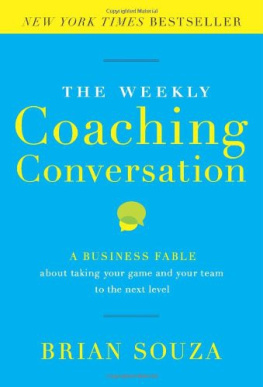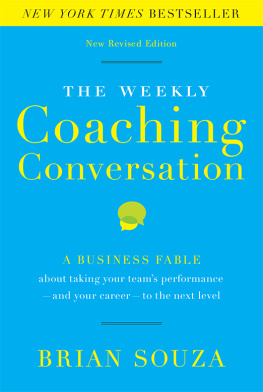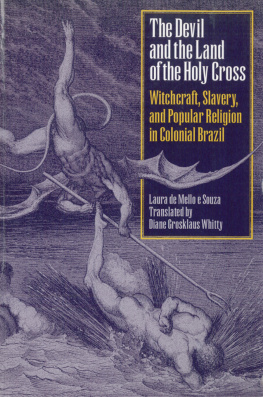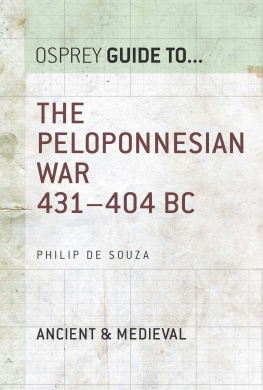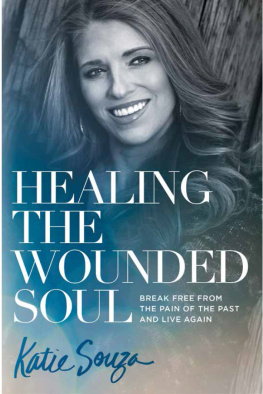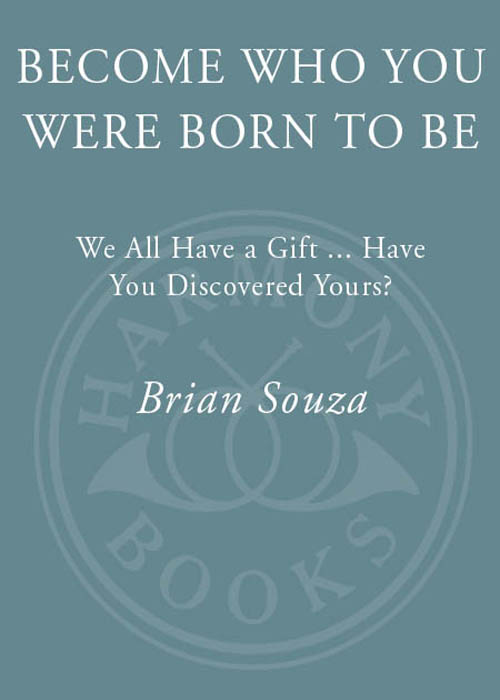
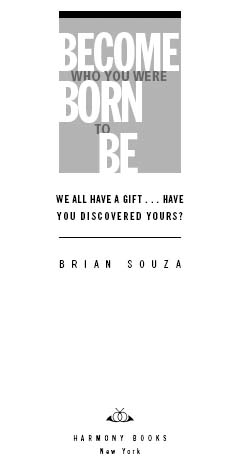
CONTENTS
To my family
Find a way to combine your gifts, passions, and the needs of others.
ACKNOWLEDGMENTS
As I reflect on the enormity of this project I am quickly humbled by the thought of how futile my efforts would have been without the help, guidance, love, and support of so many incredible people.
To my wife and our two daughters, I am truly grateful for all the love, support, and patience youve shown in allowing me the time and space needed to discover who I was born to be.
I would like to thank my parents, Larry and Sandy, for their unconditional love and support over the years. You have given me the seeds and roots to grow an amazing life.
I would also like to thank Msgr. Dennis R. Clark for sharing his wisdom and generosity in allowing me to use some of the material from his Sunday homilies.
To my publisher Shaye Areheart and her team at Harmony, I thank you for all your support and for believing in me and this book. To my editor Julia Pastore, I thank you for your expertise and patience.
To my agent, Margret McBride and team, I thank you for sharing your passion for this project. I couldnt have done it without you.
To all the servicemen and servicewomen in the U.S. armed forces past and present who have dedicated their lives to preserving freedom so that ordinary people like me have the opportunity to live an extraordinary lifeI salute you.
To all my new friends I will meet as a result of this book, I thank you for your trust and faith in allowing me to be your guide on this amazing journey to discover your gift and share it with the world.
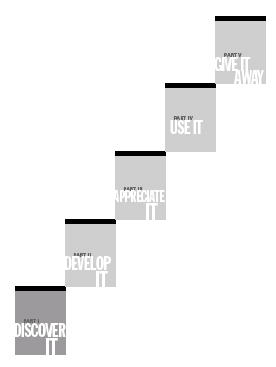
The greatest good you can do for another is not just to share your riches, but to reveal to him his own.
Benjamin Disraeli
HOW THIS BOOK CAN CHANGE YOUR LIFE
A s Americans, we live in the wealthiest society in the history of the planet. Yet today clinical depression rates are ten times what they were in 1945 during World War II. Living standards in the United States have skyrocketed sixfold in the past century. Yet today a greater percentage of Americans commit suicide than they did in 1900. We work twenty fewer hours a week than our great-grandparents did and enjoy three times as many leisure hours as they had. Yet today upward of 80 percent of American workers list job stress as a major problem.
In contrast, seven out of ten Nigerians live on less than a dollar a day, and the average person doesnt live to see his or her fifty-second birthday. Yet today a greater percentage of Nigerians than Americans consider themselves very happy. Paradoxical? Yes. Alarming? Absolutely. But surprising? Not really. Not when you look closely at the data and consider how far and how fast weve evolved as a society.
The economic problem
From the Stone Age, some hundred thousand years ago, until the industrial age of the nineteenth century, attempting to solve the economic problem provided both meaning and purpose to peoples lives. In the Stone Age, a constant struggle to provide sufficient food, clothing, and shelter gave people a reason to wake up each morning and face yet another difficult day. Back then, the primary purpose of human existence was to beat the odds and just survive. Fortunately, for the majority of Americans today, this is no longer the case.
For the first time in history, the biggest menace facing the Western world is not the ravages of a great famine, the outbreak of a horrible disease, or even the death toll of a massive war. The biggest threats facing this generation are the commercially created values of instant gratification, maniacal self-absorption, and perpetual discontent. We want what we want when we want it. And even when we get it, we still arent happy and will probably want more. Pessimists believe that our countrys best days are behind us. They speculate that Americas immense wealth and insatiable greed will inevitably lead to its own undoing, as happened with the Greeks, Egyptians, Romans, and Spaniards.
But I believe in the character of the American people. I know our best days are ahead of us. I believe that we will finally come to realize that the highest level of living can only be achieved through giving. And I believe that we, as a collective society, will pull together and use our tremendous wealth and influence to bring peace and prosperity not only to ourselves, but also to those in need throughout the world. Well-known economist John Maynard Keynes was on to something when he predicted that once the economic problem is solved, mankind will be deprived of its traditional purpose. But perhaps he failed to consider that there might be another, greater purpose to justify human existence. Perhaps our highest need as human beings is not just to survive but to thrive by using our God-given gifts in pursuit of our lifes purpose.
This process begins with discovering our own unique gifts, talents, or abilities and applying the other principles introduced throughout this book. When we discover our gifts, we uncover our passion. When we uncover our passion, we find our purpose. When we find our purpose, we fulfill our destiny.

MY STORY
I had finally come to the realization that meaning was more important than money, that purpose was more important than power, and that giving was more important than getting.
Do you ever feel burned out, beat up, or just plain old bored by the monotony of everyday life, wondering, Is this all there is? Do you ever feel trapped in a stress-filled job that leaves you unhappy and unfulfilled? Do you ever question if youre doing what youre supposed to be doingif youre fulfilling your lifes purpose? If so, you are not alone. In fact, these questions weighed heavily on my mind a number of years ago.
There I was, at the top of the proverbial ladder of success before my twenty-seventh birthday. In only four years time, I had transformed myself from a starving college student earning nineteen thousand dollars a year into a corporate executive earning well into the six figures as a senior manager of a sixty-million-dollar business unit for a publicly traded company.
Externally, I had everything I thought I had always wanted: a big, beautiful home, fancy cars, exotic vacations, and all the toys one could want. Internally, a very different story was unfolding. Little did I know at the time, but within a matter of days of receiving the promotion I had worked so hard to achieve, my world would be turned upside down. Despite the fact that I had turned into the quintessential twentysomething yuppie, I certainly didnt start out on that path. In fact, I grew up in a small, working-class farm town in the middle of Californias breadbasket region.
I come from an amazing family with humble roots. Im the second of four children. When I was about ten, my parents started a farm equipment brokering company that was both visionary and ahead of its time. When the agriculture market took a dive in the eighties, there were times when we were lucky to have milk in our Cheerioslet alone a silver spoon to eat with. Although money was scarce, I had the richest childhood one could hope for. In the things that matter most in life, my parents wereand still arethe most successful people Ive ever known. At age eleven, I started working odd jobsmowing lawns, delivering newspapers, and busing tablesin order to earn some extra spending money. After graduating from high school, I moved to the Bay Area to attend Foothill Community College and began supporting myself by bagging groceries at a local supermarket and opening doors as a host at the Olive Garden. Within two years, I had saved enough money to transfer to San Diego State University, where I worked as a waiter in an Italian restaurant until I finished my degree in international business. At this stage in my life, success to me meant one thing: money and lots of it.
Next page

